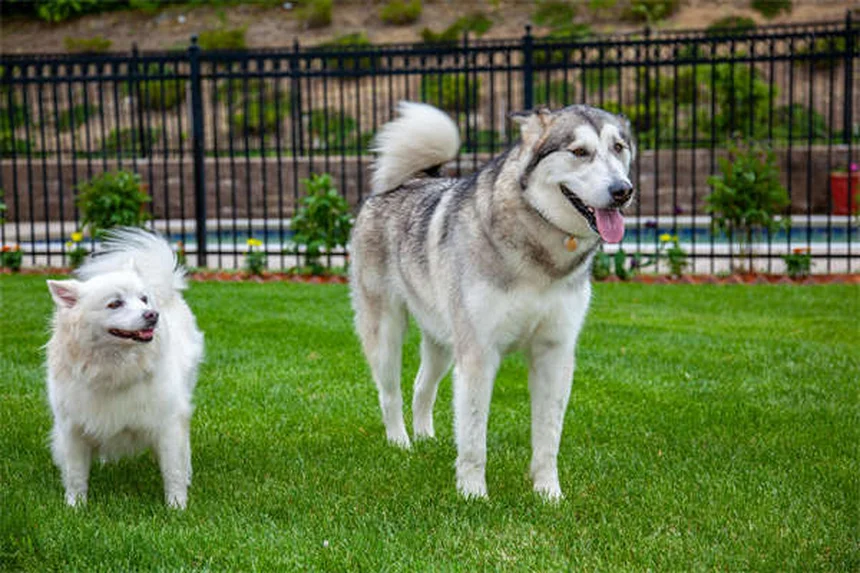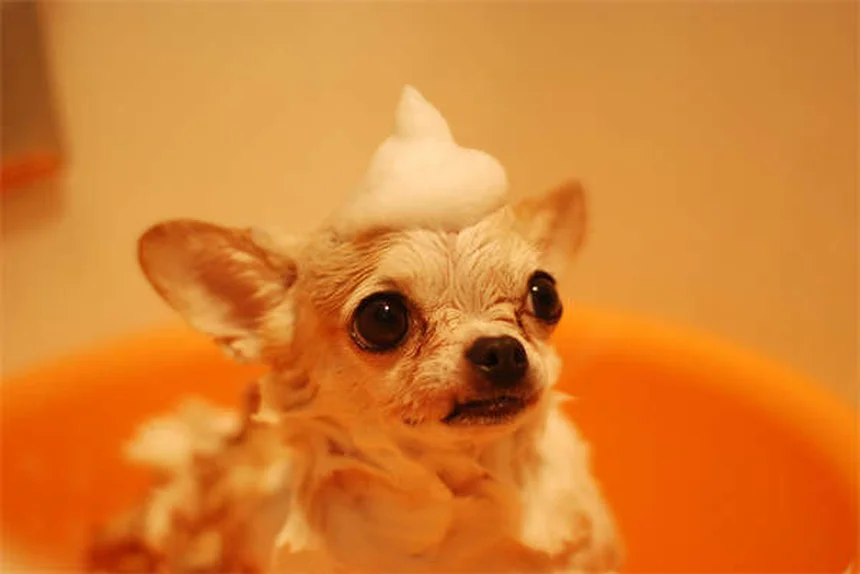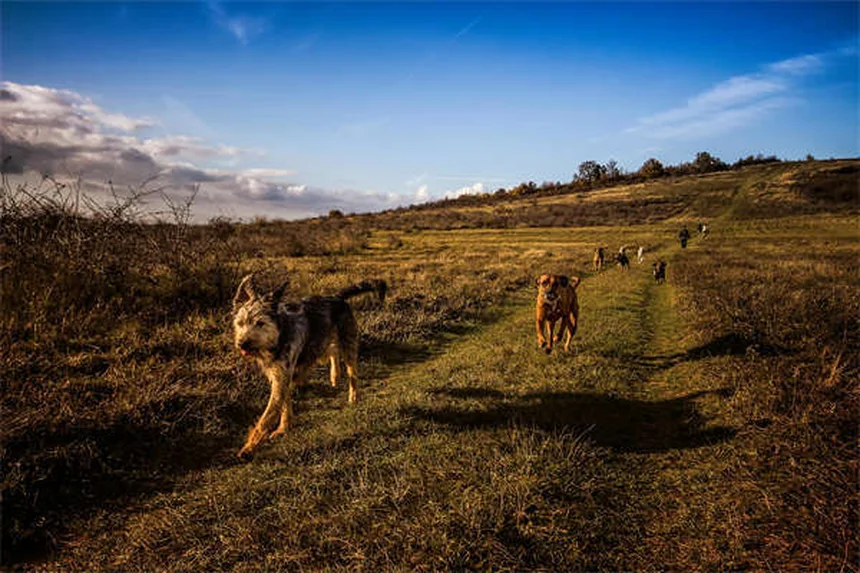What to Feed a Dog With Diarrhea: Vet-Approved Tips
What should you feed a dog with diarrhea? The answer is simple: a bland diet of boiled chicken and white rice is your best bet when your pup's tummy is upset. I've been through this countless times with my own dogs, and let me tell you - this combo works like magic! The key is to start with small portions (think 1-2 tablespoons per 10 pounds of body weight) every few hours. Never withhold water - dehydration is the real danger with diarrhea. While most cases can be managed at home, if your dog shows signs like lethargy, blood in stool, or vomiting, it's straight to the vet we go!
- 1、Oh No! My Dog Has Diarrhea - What Now?
- 2、The Magic of Bland Diets
- 3、When to Hit Pause: The Fasting Question
- 4、Chronic Diarrhea: When to Worry
- 5、Pro Tips From a Diarrhea Veteran
- 6、The Recovery Roadmap
- 7、The Emotional Toll of Dog Diarrhea
- 8、Beyond Chicken and Rice
- 9、The Science Behind Doggy Diarrhea
- 10、When Home Remedies Aren't Enough
- 11、Prevention is the Best Medicine
- 12、FAQs
Oh No! My Dog Has Diarrhea - What Now?
Panic Mode or Problem-Solving?
Picture this: You wake up to that horrible sound at 3 AM - your dog's stomach making noises like a broken washing machine. Then you see it - diarrhea all over your brand new carpet. Welcome to pet parenthood!
But here's the good news - I've been through this dozens of times with my dogs, and I can tell you exactly what to do. The first question everyone asks: "Should I even feed my dog right now?" Let's break this down.
To Feed or Not to Feed?
Here's a simple rule: If your dog isn't vomiting, yes, you should feed them. Starving a sick dog often makes things worse. Think about when you have an upset stomach - wouldn't you rather have some plain crackers than nothing at all?
But wait - is all food created equal when your pup has diarrhea? Absolutely not! That's where the bland diet comes in. We'll get to the delicious details (well, as delicious as boiled chicken gets) in just a moment.
The Magic of Bland Diets
 Photos provided by pixabay
Photos provided by pixabay
Why Bland is Beautiful
Imagine your dog's digestive system is like a grumpy old man who just wants his plain oatmeal and early bedtime. That's exactly what a bland diet provides - simple, easy-to-digest foods that don't irritate their system.
The classic combo is boiled chicken and white rice. Why these two? Let me show you:
| Food | Why It Helps | How to Prepare |
|---|---|---|
| Boiled Chicken | Lean protein that's gentle on the stomach | Boil with no seasoning, remove all skin and fat |
| White Rice | Easy carbs that help bind stool | Cook until very soft - mushier than you'd eat |
Portion Control is Key
Here's where most people mess up - they give too much too soon. Start with just 1-2 tablespoons of the chicken-rice mix per 10 pounds of body weight. Give this small amount every 2-3 hours.
Why so little? Because your dog's digestive system is like a fragile vase right now - you wouldn't fill it to the brim! Small, frequent meals are much easier to handle than one big meal.
When to Hit Pause: The Fasting Question
Short Breaks Can Help
Sometimes, the best thing you can do is give your dog's system a complete rest. A 12-24 hour fast (with plenty of water!) can be like hitting the reset button on their digestion.
But here's an important question: "Does fasting work for all dogs?" Nope! Puppies under 3 months, senior dogs, or dogs with health conditions should never fast without vet approval. Their little bodies need constant nutrition.
 Photos provided by pixabay
Photos provided by pixabay
Why Bland is Beautiful
During any fast - or really any time your dog has diarrhea - keep that water bowl full! Diarrhea causes serious fluid loss. I always add ice cubes to make it more interesting - my dogs think it's a fun game!
Chronic Diarrhea: When to Worry
Spotting the Red Flags
One episode of diarrhea? Probably no big deal. But if your dog has ongoing diarrhea, blood in their stool, or seems lethargic, it's vet time. These could be signs of serious conditions like inflammatory bowel disease.
Here's another question people often ask: "Can I just keep feeding the bland diet forever?" Bad idea! While great short-term, it lacks essential nutrients for long-term health. That's why prescription diets exist for chronic cases.
Prescription Diets to the Rescue
For dogs with chronic digestive issues, vets often recommend special foods like Hills i/d or Royal Canin Gastrointestinal. These are scientifically formulated to be gentle while providing complete nutrition.
The best part? Many of these foods taste great (according to my picky eater, at least). Just transition slowly - mix with their current food over 7-10 days to avoid more stomach upset.
Pro Tips From a Diarrhea Veteran
 Photos provided by pixabay
Photos provided by pixabay
Why Bland is Beautiful
After dealing with countless diarrhea episodes, I've discovered some magic helpers:
- Pumpkin puree (not pie filling!) - the fiber helps firm things up
- Probiotics - these good bacteria help restore balance
- Bone broth - great for hydration and gentle nutrition
When to Call the Vet
Don't play hero - some situations need professional help:
- Diarrhea lasting more than 48 hours
- Blood in the stool
- Your dog seems lethargic or in pain
- If your puppy has diarrhea (they dehydrate fast!)
Remember - you know your dog best. If something feels off, trust that instinct. I've never regretted an "unnecessary" vet visit, but I have regretted waiting too long!
The Recovery Roadmap
Day-by-Day Guide
Here's how I typically handle a diarrhea episode:
| Day | Action | Food |
|---|---|---|
| Day 1 | 12-24 hour fast (water only) | None |
| Day 2 | Small bland meals every 2-3 hours | Chicken & rice |
| Days 3-5 | Gradually increase portion size | Chicken & rice |
| Days 6-7 | Start mixing in regular food | 75% bland, 25% regular |
Preventing Future Episodes
After you survive this episode (and you will!), consider these prevention tips:
- Transition foods slowly over 7-10 days
- Avoid giving table scraps (no matter how cute they beg!)
- Keep trash cans secured - dogs are master dumpster divers
- Consider probiotics as part of their daily routine
And most importantly - stock up on carpet cleaner and paper towels. Because let's be real, this probably won't be the last time!
The Emotional Toll of Dog Diarrhea
Stress Levels Through the Roof
Let's talk about something nobody mentions - how emotionally draining it is when your pup is sick. That middle-of-the-night cleanup session isn't just physically exhausting - it wrecks your peace of mind too.
I remember pacing around my kitchen at 2 AM, covered in... well, you know... wondering if I'm a terrible dog parent. Here's what I learned: this happens to everyone. Even veterinarians' dogs get diarrhea! The important thing is how you handle it.
Bonding Through the Mess
Believe it or not, these messy situations can actually strengthen your bond. Your dog knows you're helping them feel better. My golden retriever gives me this look of pure gratitude after I clean him up - like "Thanks human, I didn't mean to ruin your favorite shoes."
The secret? Stay calm. Dogs pick up on our stress. I've found that playing soft music and talking in a soothing voice helps both of us relax during these chaotic moments.
Beyond Chicken and Rice
Alternative Bland Diet Options
What if your dog is allergic to chicken or you simply don't have any on hand? Here are some great substitutes that work just as well:
| Protein | Carb | Bonus Benefit |
|---|---|---|
| Boiled lean ground turkey | Sweet potato | Extra fiber helps firm stool |
| Boiled white fish | Pasta (plain) | Easier to digest than rice for some dogs |
| Scrambled eggs | Oatmeal | Great for sensitive stomachs |
The Magic of Pumpkin
Why do vets always recommend pumpkin? Because it's nature's perfect balance of soluble and insoluble fiber. The soluble fiber absorbs excess water in the digestive tract, while the insoluble fiber adds bulk to stool.
But here's a pro tip: always use plain canned pumpkin, not pumpkin pie filling which contains spices and sugar. I keep several cans in my pantry just for these emergencies - it's cheaper than vet bills!
The Science Behind Doggy Diarrhea
What's Actually Happening Inside
When your dog has diarrhea, their intestines are basically in panic mode. The intestinal lining becomes irritated, causing it to secrete more fluid than usual while also moving contents through too quickly.
This explains why bland diets work so well - they're low in fat and fiber, which gives the intestines a chance to heal without being overstimulated. It's like putting your digestive system on light duty while it recovers.
The Gut Microbiome Connection
Did you know your dog's gut contains trillions of bacteria? When diarrhea strikes, this delicate balance gets thrown off. That's why probiotics can be so helpful - they replenish the good bacteria that help with digestion.
I always compare it to a garden after a storm - you need to replant the flowers (good bacteria) that got washed away. My vet recommended a specific canine probiotic that I now swear by - it's made all the difference for my sensitive-stomached pup.
When Home Remedies Aren't Enough
Signs You Need Professional Help
While most cases of diarrhea resolve with home care, some situations absolutely require veterinary attention. Here's what should send you straight to the vet:
- Diarrhea accompanied by vomiting (especially if they can't keep water down)
- Black or tarry stools (could indicate internal bleeding)
- Severe lethargy or collapse
- Bloated or painful abdomen
- If your dog tries to vomit but nothing comes up (emergency!)
What to Expect at the Vet
If you do need to visit the vet, here's what they'll likely do:
First, they'll ask about your dog's history and symptoms. Then comes the fun part - they might recommend diagnostic tests like fecal exams, blood work, or even X-rays. I always bring a fresh stool sample (in a sealed bag, of course) to save time.
Treatment might include fluids under the skin (my dog acts like this is the best spa treatment ever), prescription medications, or special therapeutic foods. The bill might sting, but seeing your pup recover is priceless.
Prevention is the Best Medicine
Daily Habits for Digestive Health
After dealing with one too many diarrhea disasters, I've developed some daily habits that keep my dog's digestive system happy:
- Consistent feeding schedule (dogs thrive on routine)
- High-quality dog food appropriate for their age and size
- Limited treats (no matter how much they beg with those puppy eyes)
- Regular exercise (helps keep everything moving properly)
- Fresh water available at all times
The Dangers of Table Scraps
We've all been tempted to share our dinner with those pleading eyes, but human food is a common cause of digestive upset in dogs. Some particularly problematic foods include:
Fatty meats (hello, bacon grease!), dairy products, spicy foods, and anything containing xylitol (an artificial sweetener that's toxic to dogs). I keep a jar of dog treats by the table so I can say "no" to my food but "yes" to theirs.
Remember - what seems like a tiny bite to you could be a massive portion for a small dog. Their digestive systems just aren't designed to handle our rich, seasoned foods.
E.g. :What To Feed a Dog With Diarrhea | PetMD
FAQs
Q: Can I give my dog pumpkin for diarrhea?
A: Absolutely! Plain canned pumpkin (not pie filling) is one of my favorite natural remedies for dog diarrhea. The fiber in pumpkin helps absorb excess water in the digestive tract, which can firm up loose stools. I always keep a can in my pantry for emergencies. Just mix 1-2 tablespoons into their bland diet. Pumpkin also provides beneficial nutrients and is generally very well tolerated. However, it's not a cure-all - if your dog's diarrhea persists beyond 48 hours or they show other symptoms, consult your vet immediately.
Q: How long should I feed my dog the chicken and rice diet?
A: Typically, you'll want to stick with the bland diet for 3-5 days after the diarrhea stops. Here's how I do it: Day 1 is usually fasting (with water), Days 2-3 are small frequent meals of just chicken and rice, then Days 4-5 I start gradually mixing in their regular food. By Day 7, most dogs are back to their normal diet. The key is to transition slowly - their digestive system needs time to fully recover. If diarrhea returns when reintroducing regular food, extend the bland diet another day or two.
Q: Is it safe to give my dog Pepto-Bismol for diarrhea?
A: While some vets may recommend Pepto-Bismol in specific cases, I never give it without consulting my vet first. The active ingredient (bismuth subsalicylate) can be problematic for some dogs, especially if they have certain health conditions or are on other medications. There's also a risk of overdose. Personally, I prefer natural approaches like the bland diet, pumpkin, and probiotics. If your dog needs medication, your vet can prescribe something specifically formulated for canine digestion that's much safer than human medications.
Q: Why is my dog's diarrhea not improving with bland diet?
A: If the bland diet isn't working after 2-3 days, your dog likely has an underlying health issue that needs veterinary attention. Chronic diarrhea can indicate problems like food allergies, parasites, inflammatory bowel disease, or even more serious conditions. My golden rule? If there's no improvement within 48 hours, or if symptoms worsen (blood in stool, vomiting, lethargy), it's time for a vet visit. They can run tests to identify the root cause and may recommend prescription gastrointestinal food or medications.
Q: Can I use hamburger instead of chicken for the bland diet?
A: Yes, but with important caveats! Lean ground beef (90% lean or higher) can substitute for chicken, but you must boil it thoroughly and drain all the fat. I actually prefer chicken because it's naturally lower in fat, which is easier on an upset stomach. If using beef, cook it until it's completely gray (no pink), then rinse it with hot water to remove even more fat. The rice portion stays the same. Remember - the leaner the protein, the better when dealing with diarrhea!




